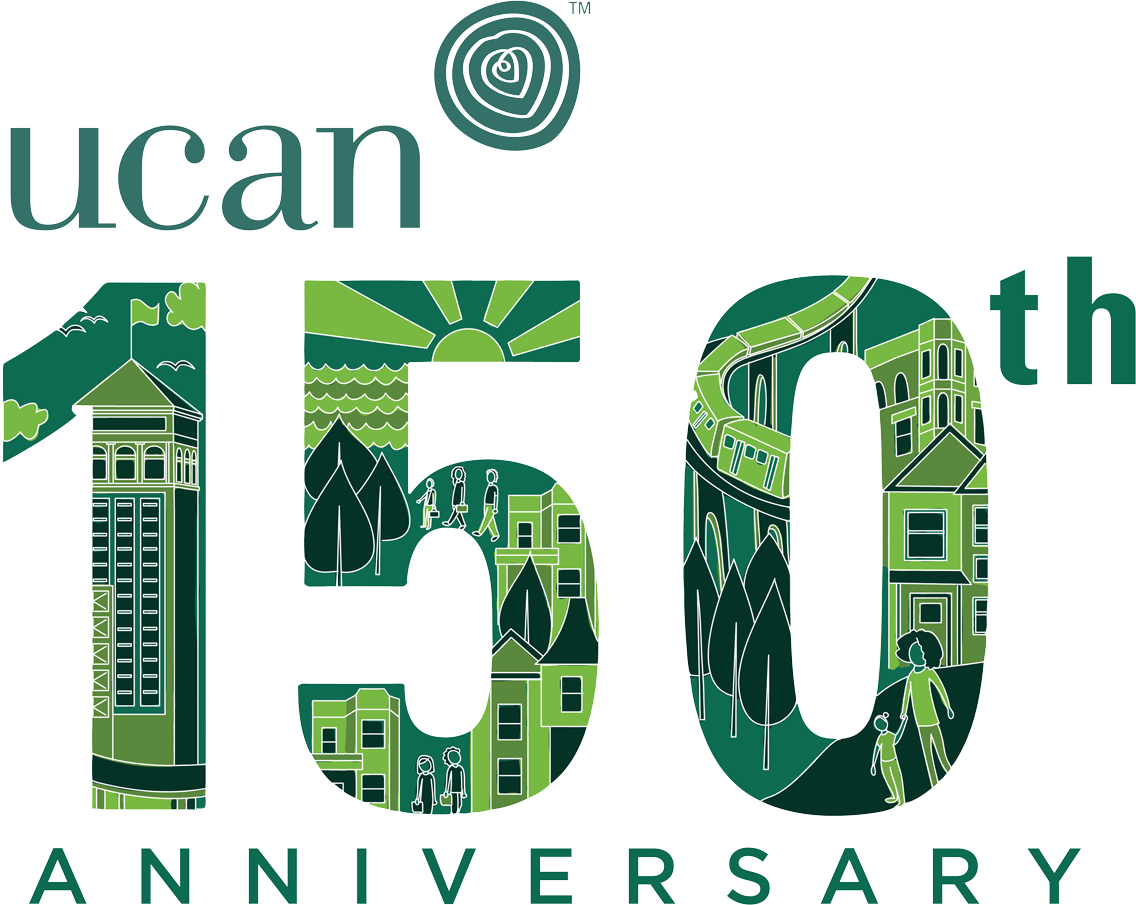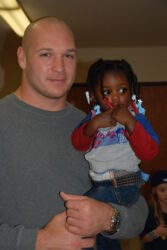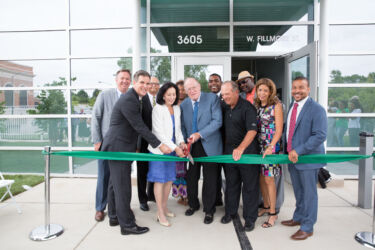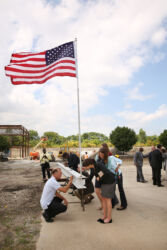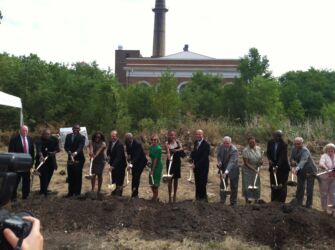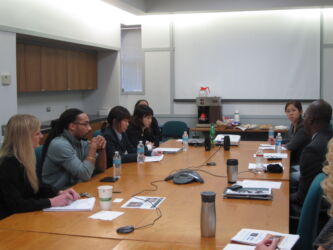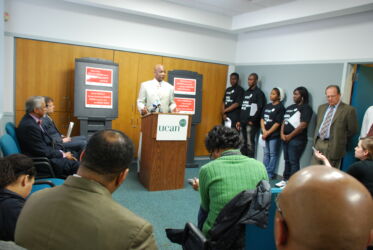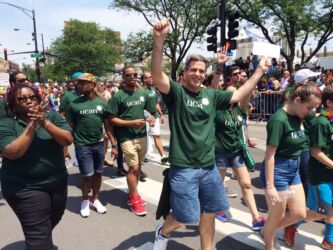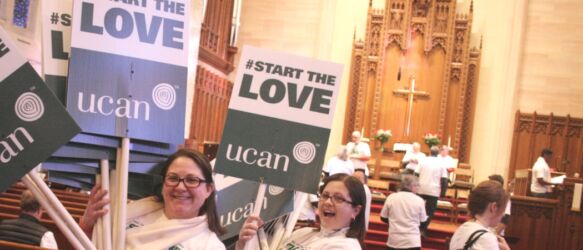2009-2019
2009
Michael McDermott hosts Benefit Show for UCAN.
UCAN begins a LGBT Host Home program.
2010
UCAN serves as the lead organization of the Peace Hub, a collaboration of over 50 youth serving partners. The Peace Hub seeks to reduce exposure to or participation in violent activities, address trauma and improve positive outcomes for youth by facilitating easy access to programs and services, and by fostering a consistent continuum of care through case management systems. In addition, to the development of common indicators for evaluating youth services, the Peace Hub also advances the professional development of providers and collaborates to establish trusted trauma screening tools for members.
Brian Urlacher visits UCAN youth at Lowden Homes. (December 21, 2010)
2010 UCAN launches the results of its 2009 Teen Gun Survey, accompanied by Congressman Michael Quigley (IL-5) and Senator Donne Trotter (17th District). Alarmed by increasing gun violence in their neighborhoods and schools, Chicago teens asked local, state and national policy makers to help keep them safe. The survey revealed that more than one in four teen know someone who has been shot and more than one in three teens fear being shot someday (March 01, 2010)
2011
The Future Leaders Now Program begins.
The Teen Parenting Services Network Statewide Program begins.
2012
Violence Prevention Programming begins.
Brady Event with Mayor Emanuel and Bryan James (February 1, 2012)
Osaka Delegation visits. (February 12, 2012)
2013
Formal Ground breaking on New Campus takes place. (September 11, 2013)
2014
Norman Kerr, Vice President of Violence Intervention and Prevention Services, speaks at Kennedy King College on a panel about violence and the impact of trauma. (November 06, 2014)
UCAN youth Naheige Lewis featured as one of the participants in the inaugural year of the VING project, which is dedicated to empowering youth by giving them the power to give back to those that have inspired them.
2015
St. Pauls UCC’s first Polar Peace March takes place, raising over $30,000 for UCAN. (January 18, 2015)
UCAN deepens connections with LBGTQ allies by marching for the first time in Chicago’s annual Pride Parade. (June 26, 2015)
UCAN becomes the agency’s official name replacing the formally used Uhlich Children’s Advantage Network. (March 9, 2015)
UCAN celebrates the completion of Phase 1 of our ambitious capital campaign by hosting a ribbon cutting outside our Diermeier Therapeutic Youth Home in North Lawndale. . (August 1, 2015)
2016
UCAN receives an expedited accreditation through COA as a result of not receiving any out of compliance rates in any of the fundamental practice standards. (April 11, 2016)
Zack Schrantz becomes new President/CEO (July 1, 2016)
UCAN’s Nichols Center Ribbon Cutting – The entire staff at the former Mozart and Liberty Bank locations, as well as key staff from the Western and Riverdale sites, begin to officially move into the Nichols Center. (July 11/2016)
2017
Mayor Rahm Emanuel holds press conference on reducing gun violence at UCAN new headquarters (April 18, 2017)
UCAN welcomes almost 50 former employees of Beacon Therapeutic to the family. Beacon Therapeutic worked for over forty years to empower children and families, by helping discover a better future through accredited educational, mental health and social services. However, given a combination of both federal and state funding reductions, Beacon Therapeutic was forced to shutter its doors. (July 1, 2017)
Chief Judge Timothy C. Evans formally announces the opening of the first-ever Restorative Justice Community Court which is held at UCAN’s Nichols Center on a weekly basis. It is designed to empower victims and residents to play an active role in the rehabilitation of offenders 18-26 years old who have committed non-violent crimes. This approach helps reintegrate offenders back into the community through connection to various services, mental health counseling, substance abuse treatment, education, job training and parenting support. (July 20, 2017)
